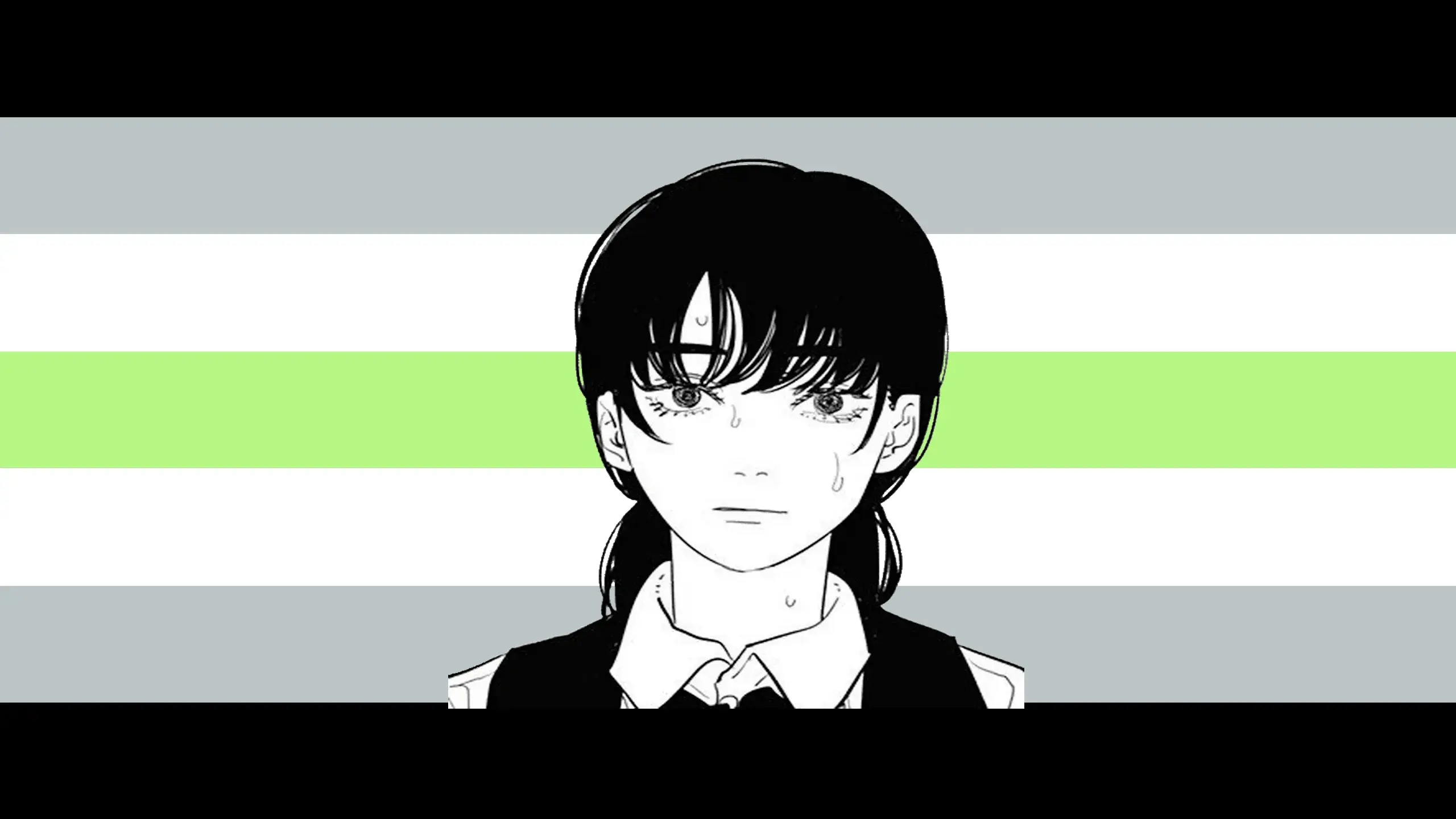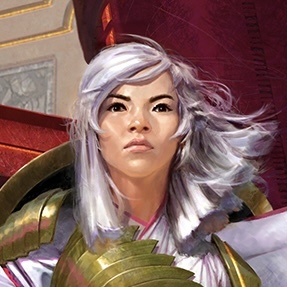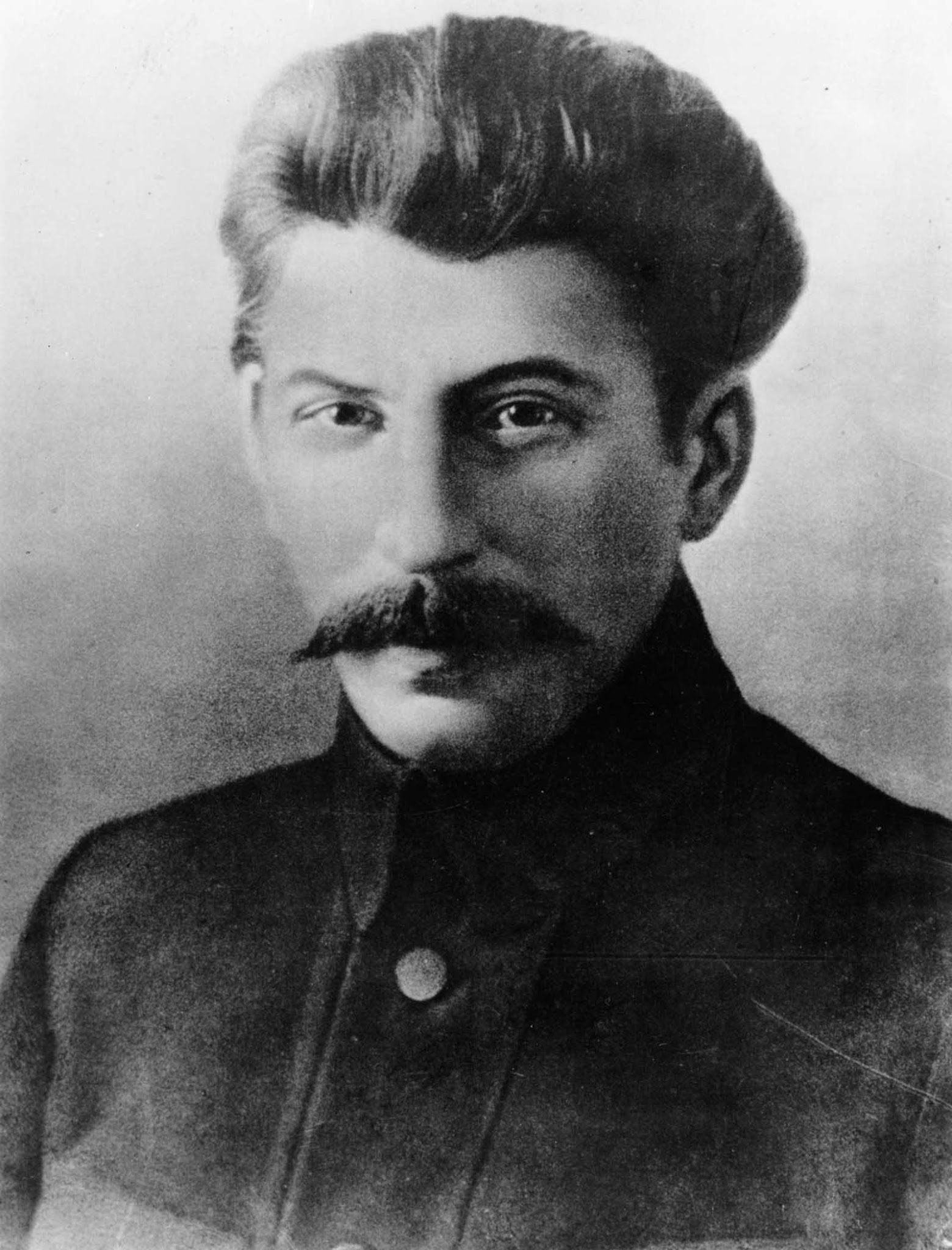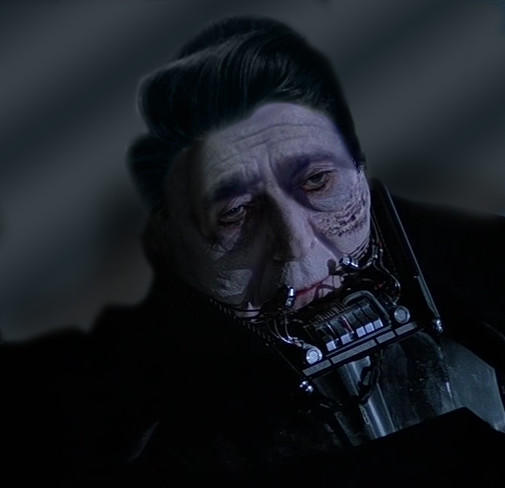The French and Haitian Revolutions are one of the most fascinating and momentous events in what passes for western history, and yet the way liberals treat these subjects is just downright atrocious
While the horrific counter-revolution of 1776 is glorified, the French Revolution is treated like some ugly step-child they’d rather keep locked in the basement
I’m sick of it, I just want to learn about a cool-ass revolution without power-worshipping liberals throwing a conniption
Liberals don’t even like the stories of liberal revolutionaries overthrowing monarchs, because all they know is the status quo. If they lived 300 years ago they absolutely would have been monarchists
Boot is their staple diet
It’s rather telling of the overall worldview of liberals in the imperial core that they’d rather sympathize with with a handful of dead Bourbons or Romanovs than the countless millions that toiled and died under their rule for centuries. These are the same people that might nod along to concepts like “generational trauma” in a modern context but fail to apply that theory to the countless billions that came before them. Real pea brain shit.
Those people didn’t have culottes. Can’t sympathize with the culotte-less.
It’s fiction, but the Rose of Versailles is pretty dope.
Have you tried the Revolutions podcast? The host is pretty lib, but I remember it being decent.
Yeah I’ve gone thru the Revolutions podcast, the implicit bias was still there and it really grated on me
As is Chevalier d’Eon, which more or less works as a prequel. It’s bonkers and kind of Pre-Marxist Hegelian in its take, as it shows the French monarchy as a stagnant ideology about to be blown away by a literal Zeitgeist and the main characters are gradually disillusioned with their mission. Also alchemical zombies with mercury blood powered by the Book of Psalms
I have searched so hard for any documentaries or fiction set in the revolution that are not reactionary. Hope people have had better luck than I. It is maddening that the most famous cultural touchstones of the event are Tale of Two Cities and Scarlet Pimpernel
I’m uncultured but I heard Dickens was pretty progressive no? Like, socialist sympathies at least
I like Dickens quite a lot. However he is a Brit and was a lib. Dickens’ personal history is very tragic and his trauma over child labor encouraged much of his work. A Christmas Carol was written to bring the findings of an investigation into labor in England to the British middle class and essentially shame them. He originally wanted it to be more of a polemic called “'An Appeal to the People of England on behalf of the Poor Man’s Child”, but realized that a story could do more. Writing
rest assured that when you know [it], and see what I do, and where and how, you will certainly feel that a sledge-hammer has come down with twenty times the force — twenty thousand times the force I could exert by following out my first idea. Even so recently as when I wrote to you the other day I had not contemplated the means I shall now, please God, use. But they have been suggested to me; and I have girded myself for their seizure— as you shall see in due time.
However as progressive as he was, Dickens was still very anti-revolution. He did not really view injustices like slavery, wage or chattel, as part of a larger evil, but rather as social moral failings. Dickens said he read Carlyle’s history of the Revolution 500 times as his basis for Tale of Two Cities. A book by a Brit and very anti-Jacobin though also utterly anti ancien regime which Dickens was as well. French historians took their time to really approach the era again and when they did history had become a much more professional field, so even the more critical ones are much better as histories than Carlyle’s. Not that Carlyle was unbearably bad, Marx and Engels favored him to the rest of British writers
Marx identified the literary as well as the political representatives of the English bourgeoisie as Pecksniffs in an assessment of the work of Thomas Carlyle written with Engels in 1850. Carlyle’s style, they argue, ‘is at one with his ideas. It is a direct violent reaction against the modern English Pecksniffery [‘Pecksniff-stil’] …whose circumspect verbosity and vague, sentimentally moral tediousness has spread…to the whole of English literature’. Carlyle, and by implication Dickens, are exceptions to, and critics of, the bourgeois discursive norm.
It is just that he viewed history as epic poetry, not science. Plus he disliked democracy so there’s that.
For Dickens the revolution was inevitable cause the aristocracy wouldn’t ease up and be compassionate, and he was warning the English that they would suffer the same fate. So there is a class analysis there, it is just not a dialectical one, it ignores the processes of history and the conflict between absolute monarchism and emergent capitalism as well as the historically progressive nature of the Jacobins. Dickens did become soured on reformism after '48, but he was never really pro-revolution.
Interesting paper on all this, though more focused on Marx and Engels’ adoption of metaphors and rhetoric. https://academic.oup.com/hwj/article/65/1/1/640507
also one I only read part of on British literature and the revolution https://eprints.ncl.ac.uk/file_store/production/56179/7CC434AE-5845-4850-8A4B-C52268FB6D90.pdf
The Jacobites are the ultimate enemy of tale of two cities (not that it stops them from being based)
You mean Jacobins? though a Jacobite resurgence during the revolution would be hilarious
Yes and yes, in the words of my people Rise and follow Charlie.
The Jacobites are the original communists in one way, they too had the music. White Cockade is a fucking bop, there is a reason its tune was the original one for The Red Flag https://www.youtube.com/watch?v=6NNkP5bJNSY
and Bragg version https://youtu.be/zEKYQ4GOqmk So much better than the “o christmas tree” version
Though it should really only be sung in an Irish accent https://www.youtube.com/watch?v=60C-RjGkuOo
I found YouTube links in your comment. Here are links to the same videos on alternative frontends that protect your privacy:
Link 1:
Link 2:
Link 3:
I do find it absolutely wild how libs think the French revolution was bad, and how much pearl-clutching they do to a bunch of aristocrats who would barely consider them human. It was your revolution dipshit, it helped create the status quo that you defend now.
It was your revolution dipshit, it helped create the status quo that you defend now.
Exactly. That’s what’s so crazy about their hatred of it. Libs are something else
Marat / Sade - play by Peter Weiss, film by Peter Brook
sorry but i don’t think you’re going to find any film remotely acceptable in the english language. the british loathe the revolution because [they are british], the americans loathe it because it was UNCIVIL and MEAN to Sweet Baby Lafeyette.
you’re going to have to read a book, i don’t have a pick for “definitive tome” on France but Black Jacobins and The Common Wind ain’t terrible for Haiti
I read the biography of Napoleon by Philip Dwyer and he absolutely fucking hates him, like every page is dripping with contempt for Napoleon lol. It honestly got tiresome for me. Not exactly what you’re asking for but in the same ballpark. If you find it in a used bookstore, take a flip through.
what’s dwyer’s angle, is he a reactionary who hates napoleon for being a liberal or is he a jacobin who hates napoleon for being an opportunist or does he just have british brainworms or what?
It’s been several years now and I am far more radicalized now than when I read it, so my political analysis is going to be hazy.
As I recall, he paints Napoleon as a sort of proto-Hitler who took advantage of a very popular uprising against the existing power structures and channeled the revolutionary fervor into a cult of personality with himself at the center. The book mostly centers around Napoleon’s military exploits, and his ingenious manipulation of mass media to convert his actual battlefield heroism into highly aggrandized cachet and political power.
What sticks out in my memory is Dwyer’s visceral hatred of Napoleon, which he backs by the number of dead involved in the Napoleonic wars - he basically points to the number and says, “this many people died to uphold Napoleon’s personal stake in the French government.”
Is there a Hinge Point™ here, where Napoleon’s death would have drastically changed the course of the French Revolution? or was the outcome determined beyond his personal involvement? Up for debate. But Dwyer’s whole thrust is, “this guy was a self-serving power maniac, and was willing to march troops from Paris to Moscow, murdering anyone in his path, to hold onto his power.”
fwiw I believe Dwyer is Australian, which comes with its own set of
 . But tone and authorial bias aside, it really is a fascinating and detailed two-volume biography.
. But tone and authorial bias aside, it really is a fascinating and detailed two-volume biography.P.S.: speaking of musk-ovites, I remember reading that Napoleon would send letters to Josephine that were like, “I’ll be home in two weeks, don’t bathe between now and then, I want you to stink for me when I get back.”
P.S.: speaking of musk-ovites, I remember reading that Napoleon would send letters to Josephine that were like, “I’ll be home in two weeks, don’t bathe between now and then, I want you to stink for me when I get back.”
Funny, I saw an article about this just this morning. Sadly, probably a myth: https://slate.com/culture/2023/11/napoleon-movie-josephine-sex-smells-body-odor.html
I feel like there are lengthy quotes from his letters in the book… don’t have it on hand to confirm tho
“Having read all of Napoleon’s letters to Joséphine, I’ve never come across it,” Philip Dwyer, a professor at the University of Newcastle who has authored multiple biographies of Napoleon, told me. “His letters were intimate, and they did contain sexual allusions, but nothing as graphic.”
my memory is owned
def a lot of letter discussion in the book tho. guess my recollection was apocryphal, or maybe he talks about the myth of that being their content and Streisand-Mandela effected it into my brain
The James Joyce fart letters are real, if it’s any consolation: https://www.theparisreview.org/blog/2018/02/02/james-joyces-love-letters-dirty-little-fuckbird/ (NSFW)
That’s basically Marxs take on napoleon too
I’ll tell you one thing, its definitely not Assassin’s Creed Unity. The message of the game is that believing in anything is bad, because extremist do things like kill. It does this without any sense of irony that the name of the series is literally Assassin’s Creed
I love how the Assassins and Templars have this millenia long conflict with no discernable ideology lol
In the Ezio games there was an interesting subplot in the puzzle minigames about the Templars inventing capitalism because relying on monarchs and aristocrats was getting them killed more often than not, the puzzle game even brought up the Bretton Woods Conference and made Keynes a templar, which really tickled me
Of course this was all the work of whatever crypto-trot was in charge of designing the minigames and the thread was never picked up in subsequent Creed games
Secretly, the conference was a cover for a meeting between the economic agents of the Templar Order, including John Maynard Keynes and Harry Dexter White. On the last day of the conference, a speech was given to Abstergo Industries employees, economists, and world leaders, mentioning the formation of the “Plan” by Henry Ford and Ransom Eli Olds in 1910 and the threat presented by the communist system, as well as the efforts of Adolf Hitler and Joseph Stalin to create the “turmoil and fear necessary” for the implementation of the new economic system, capitalism.
Joseph Stalin doing a false flag to better establish capitalism as a dominant ideology

They kind of have ideologies but not ones that hold up to any kind of basic scrutiny. They’re the kind of made up superficial ideologies intended to make 12 year olds think “this is deep”
I liked the one with Kirsten Dunst about Marie Antoinette. It paints her as a victim, which she absolutely was not (at least entirely), but it also shows how fucked up the French monarchs were and how they really had it coming. It’s a lib movie but I found it entertaining.
But yeah, we are generally not allowed to imagine successful revolutions or things actually changing (unless the revolutions/changes are being led by slaveowners).
The Sofia Copola movie is about how actually the ennui of rich white ladies is horror like none other, like 50% of Sofia Copolas works.
She was not even a little bit a victim. She was literally the political leader of the faction of government opposing the King from the Right. She was the French Revolutionary equivalent of the Black Hundreds.
Semi-related, but can anyone recommend a good Napoleon I biography?
See my other comment in this thread!
I would suggest the Age of napoleon podcast. The host also gives recommendations a lot and I think will help you out if you ask him on twitter
The Rose of Versailles is pretty good, it’s like half historic drama and half revolution drama. It’ll be a bit sad about all the death in the final 10 minutes of the story but it absolutely takes the side of the revolutionaries and just kinda highlights how fucked up the nobility was
The Mark Steel Revolution is a series of lectures from the late 90’s that were broadcasted on BBC Radio 4. The first one deals with the French Revolution.
I saw the extended stand up show version, and it’s really good on both details and analysis. Pretty sure I’ve never heard a bad take from Mark, he researches everything he talks about in immaculate detail.














